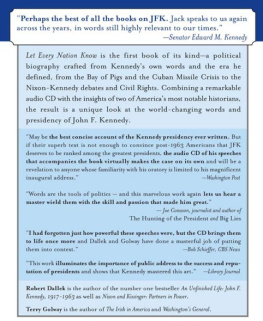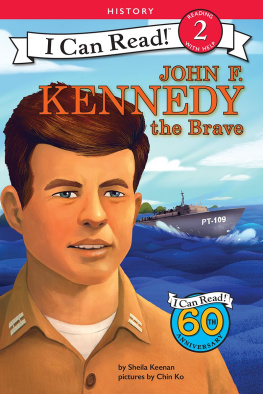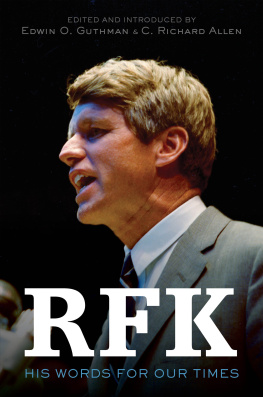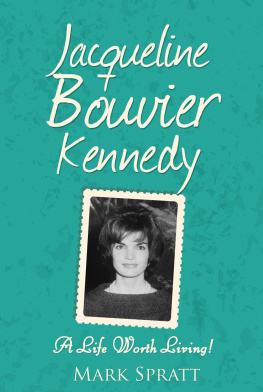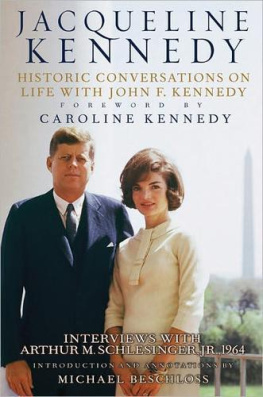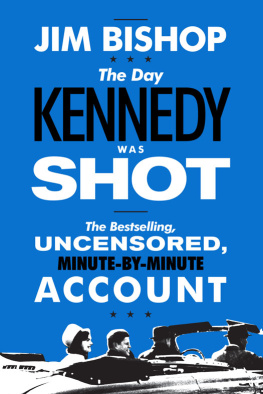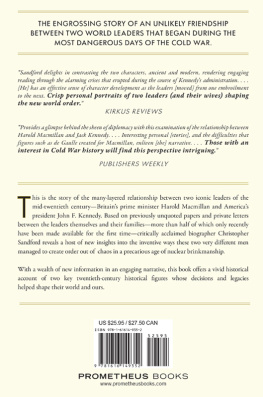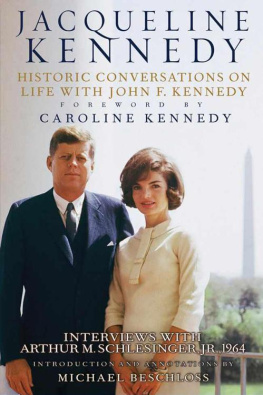Jack Kennedy
The Illustrated Life of a President

President John F. Kennedy, circa 1962.
Jack Kennedy
The Illustrated Life of a President
CHUCK WILLS
FEATURING INTIMATE PHOTOS, PERSONAL MEMORABILIA, and HISTORY-MAKING DOCUMENTS

Copyright 2009 by becker&mayer!
Page 173 constitutes a continuation of the copyright page.
All rights reserved. No part of this book may be reproduced in any form without written permission from the publisher.
Library of Congress Cataloging-in-Publication Data:
Wills, Chuck.
Jack Kennedy : The Illustrated Life of a President / by Chuck Wills.
p. cm.
Includes bibliographical references.
eISBN 978-0-8118-7746-6
1. Kennedy, John F. (John Fitzgerald), 19171963. 2. Kennedy, John F. (John Fitzgerald), 19171963Pictorial works. 3. PresidentsUnited StatesBiography. 4. PresidentsUnited StatesBiographyPictorial works. I. Title.
E842.W56 2009
973.922092dc22
[B]
2008054790
Produced by becker&mayer!, Bellevue, Washington.
www.beckermayer.com
Design: Paul Barrett
Editorial: Meghan Cleary
Image Research: Shayna Ian and Marilyn Farnell
Audio Research: Matthew Taylor
Production Coordination: Shirley Woo
Front cover image: Arnold Newman/Getty Images
Chronicle Books LLC
680 Second Street
San Francisco, CA 94107
http://www.chroniclebooks.com

A six-month-old Jack beams at the camera in this photo taken at the familys home in Brookline, 1917.

A newspaper job listing showing the explicit prejudice Irish immigrants faced in their adopted homeland.
SHORTLY AFTER 3:00 P.M. on May 29, 1917, John Fitzgerald Kennedy entered the world in a modest wood-frame home at 83 Beals Street in the Boston suburb of Brookline, Massachusetts.
Both of his parents, Joseph Kennedy and Rose Fitzgerald Kennedy, descended from the wave of Irish immigrants who poured into Boston in the mid-19th century aboard miserably disease-ridden boats called coffin ships, fleeing a potato famine that claimed one million Irish lives. As the first big wave of immigrants to Americas shores, the Irish faced intense discrimination from the native-born Protestants of Anglo-Saxon stock. The Irish were Roman CatholicsPapists in the parlance of the dayin an overwhelmingly Protestant land. They were regarded as prone to drunkenness, brawling, and thieving.
Help wanted ads in newspapers often ended with no Irish need apply. America was a young country in need of labor, however. The Irish dug a foothold for themselves through sheer hard work, and they advanced using their flair for politics. In the teeth of prejudice, both the Kennedys and the Fitzgeralds managed to prosper in business and political arenas.
Joseph Kennedys grandparents had arrived in America with nothing but the clothes on their backs. Their son, Patrick (Joes father), scrimped and saved to buy a saloon and eventually became a state assemblyman. By the time Joe was born in 1888, Patrick owned a bank. Young Joe attended Boston Latin School and Harvard along with the citys Protestant elite, but despite his comfortable upbringing and first-class education, he would nurse resentment against the established order. He lived his life determined to prove that heand later his childrenwere not only as good as anyone else, but better. Always come first. Second place is failure, he liked to saya phrase that succinctly sums up Joes intensely competitive, contentious personality.

Joe Sr. spent most of his baseball career at Harvard on the bench, but still managed to earn a letter in the sport.

Joe, self-proclaimed Americas youngest bank president, poses at his desk at the Columbia Trust Bank.
As a boy and young man, Joe had two great lovesplaying sports and making money. At Harvard, he was an indifferent student. Rather than focusing on his studies, Joe, along with a friend, ran a horse-drawn tour bus service that pulled in about $5,000 a year. After graduation, he became a bank examiner, and by 1913, at age twenty-five, he managed with some help from family money to gain control of the Columbia Trust Bank. This accomplishment gave him the opportunity to boast to anyone in earshot that he was the youngest bank president in the country.

Rose in Ireland during a year studying abroad, 1908.
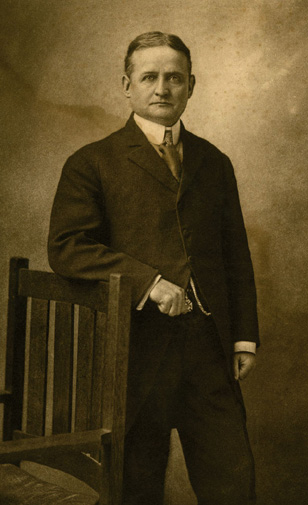
John Francis Honey Fitz Fitzgerald, captured in a rare solemn moment.
Joes future wife, Rose Fitzgerald, was born in 1890, just two years after Joe. Rose was the daughter of John F. Honey Fitz Fitzgeraldso nicknamed for his charm as well as his habit of bursting into song at the slightest provocation (Sweet Adeline was his signature tune). In a long and sometimes scandal-plagued political career, Honey Fitz served twice as Bostons mayor, plus stints as a representative in Massachusettss state house and in Congress.
Like Joe Kennedy, Rose led a privileged childhood, including time at a private school in Europe. She wanted to attend Wellesley College and become a schoolteacher, but Honey Fitz decided that it wouldnt sit well with his Irish and Italian constituents in Bostons North End if his daughter attended a Protestant college. So instead, she went to the College of the Sacred Heart in Manhattanville, New York.
Joe and Rose met as children at Old Orchard Beach, Mainea favorite resort of Bostons affluent lace-curtain Irish familiesand after a long courtship, he proposed to her in 1914. At first, Honey Fitz was opposed to the match: He had his eye on another young man as a more suitable husband for Rose. But Joes growing success as a banker finally convinced him, and he relented. The couple married on October 7, 1914. Their first child, Joseph Kennedy Jr., arrived on July 28, 1915. He was the first of nine children that Joe Sr. and Rose would produce.

Members of the Fitzgerald and Kennedy clans at Old Orchard Beach, Maine, where Bostons wealthy and powerful Irish-American families retreated on vacation.
By the time Jack was born, the United States had entered World War I. Joe Sr. didnt serve in the military. Instead, he worked as the manager of a shipyard in Quincy, Massachusetts. In later years, some of Joe Sr.s political enemies accused him of dodging the draft, but his job was important to the war effort. True to form, though, he made money on the side by selling coffee and sandwiches to his own workers. After the war ended, he became a stockbroker.
Next page

